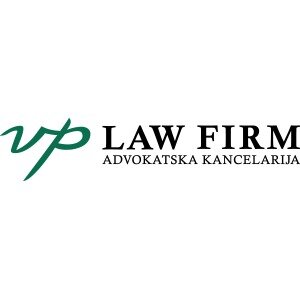Best Constitutional Law Lawyers in Serbia
Share your needs with us, get contacted by law firms.
Free. Takes 2 min.
Or refine your search by selecting a city:
List of the best lawyers in Serbia
About Constitutional Law in Serbia
Constitutional Law in Serbia refers to the body of law which defines the roles, powers, and structures of different entities within the state, notably the executive, the parliament or legislature, and the judiciary. It encompasses the rights and duties of citizens and is primarily based on the Constitution of the Republic of Serbia, adopted in 2006. The Constitution lays the foundation for the governance of Serbia, protecting the fundamental rights of its citizens, ensuring the separation of powers, and supporting the principles of democracy, rule of law, and human rights.
Why You May Need a Lawyer
There are several situations where you may require legal help in Constitutional Law in Serbia:
- Challenging a law that you believe is unconstitutional or infringes on your rights.
- Cases related to human rights abuses or seeking protection under the European Convention on Human Rights.
- Engagements or disputes involving interpretations of constitutional provisions.
- Situations involving the governance structure or questioning the legality of certain governmental actions.
- Seeking advice on public law matters or legislative reforms.
Local Laws Overview
Key aspects of local laws relevant to Constitutional Law in Serbia include:
- The Constitution: The supreme legal document, outlining governance, the rights of citizens, and the distribution of power.
- Human Rights Framework: Ensured through both national legislation and international agreements, particularly the European Convention on Human Rights.
- Judicial Review: Roles and powers of the Constitutional Court of Serbia in interpreting constitutional issues.
- Separation of Powers: Defined relationships and balances between the executive, legislative, and judicial branches.
- Amendment Procedures: How the Constitution can be amended to reflect evolving democratic processes.
Frequently Asked Questions
What is the role of the Constitutional Court in Serbia?
The Constitutional Court of Serbia is the highest authority for constitutional interpretation and review. Its main roles include ensuring conformity with the Constitution, resolving jurisdictional disputes, and protecting human and minority rights.
How does the Serbian legal system protect human rights?
Human rights in Serbia are protected by the Constitution and various national and international laws, including the European Convention on Human Rights. The Constitutional Court plays a critical role in upholding these rights.
Can a law be challenged for being unconstitutional in Serbia?
Yes, individuals and institutions can challenge laws or regulations they believe to be unconstitutional. Such challenges are typically addressed by the Constitutional Court.
What are the fundamental principles of the Serbian Constitution?
The Constitution emphasizes democracy, rule of law, human rights, national sovereignty, separation of powers, and market-driven economy principles.
How can I file a complaint regarding a constitutional issue?
Complaints related to constitutional issues generally require filing a petition to the Constitutional Court, typically done through legal representation with advice from a qualified lawyer.
What is the process for amending the Serbian Constitution?
The process involves a proposal by the President, Government, or a group of parliamentarians, followed by a parliamentary vote and potentially a national referendum, depending on the nature and scope of the amendment.
How does separation of powers work in Serbia?
The separation of powers is a fundamental principle dividing governance into three branches: the legislative (National Assembly), executive (Government), and judiciary (courts), each with distinct powers and responsibilities.
What happens in case of a constitutional crisis?
In a constitutional crisis, the Constitutional Court and other state bodies work to resolve the issue by interpreting constitutional provisions and ensuring the rule of law is upheld.
Can international legal norms influence Serbian Constitutional Law?
Yes, international treaties and conventions, particularly those Serbia is a party to, can influence and inform the interpretation and application of constitutional provisions.
How can I learn more about my constitutional rights in Serbia?
Understanding your rights can be enhanced through official publications, legal advisories, or consultation with legal professionals specializing in constitutional matters.
Additional Resources
If you need more information on Constitutional Law in Serbia, consider the following resources:
- The Constitutional Court of Serbia: Provides judgments and insights into constitutional matters.
- The Ministry of Justice, Republic of Serbia: Offers legal resources and updates on legislation.
- National Human Rights Institutions: Such as the Protector of Citizens (Ombudsman) for human rights issues.
- International Organizations: Such as the Council of Europe for information on international legal standards affecting Serbia.
- Legal Aid Services: Available through various governmental and non-governmental organizations.
Next Steps
If you need legal assistance in Constitutional Law, consider the following steps:
- Identify Your Legal Needs: Clearly define the constitutional issue you are facing or need assistance with.
- Consult a Lawyer: Research and contact an attorney specializing in constitutional law to discuss your situation.
- Gather Documentation: Assemble any relevant legal documents, evidence, and correspondence to support your case.
- Prepare Questions: Create a list of questions you have about your case to make the most of your consultation.
- Consider Legal Aid: If you cannot afford a lawyer, explore options for legal aid or pro bono legal services.
Lawzana helps you find the best lawyers and law firms in Serbia through a curated and pre-screened list of qualified legal professionals. Our platform offers rankings and detailed profiles of attorneys and law firms, allowing you to compare based on practice areas, including Constitutional Law, experience, and client feedback.
Each profile includes a description of the firm's areas of practice, client reviews, team members and partners, year of establishment, spoken languages, office locations, contact information, social media presence, and any published articles or resources. Most firms on our platform speak English and are experienced in both local and international legal matters.
Get a quote from top-rated law firms in Serbia — quickly, securely, and without unnecessary hassle.
Disclaimer:
The information provided on this page is for general informational purposes only and does not constitute legal advice. While we strive to ensure the accuracy and relevance of the content, legal information may change over time, and interpretations of the law can vary. You should always consult with a qualified legal professional for advice specific to your situation.
We disclaim all liability for actions taken or not taken based on the content of this page. If you believe any information is incorrect or outdated, please contact us, and we will review and update it where appropriate.
Browse constitutional law law firms by city in Serbia
Refine your search by selecting a city.














